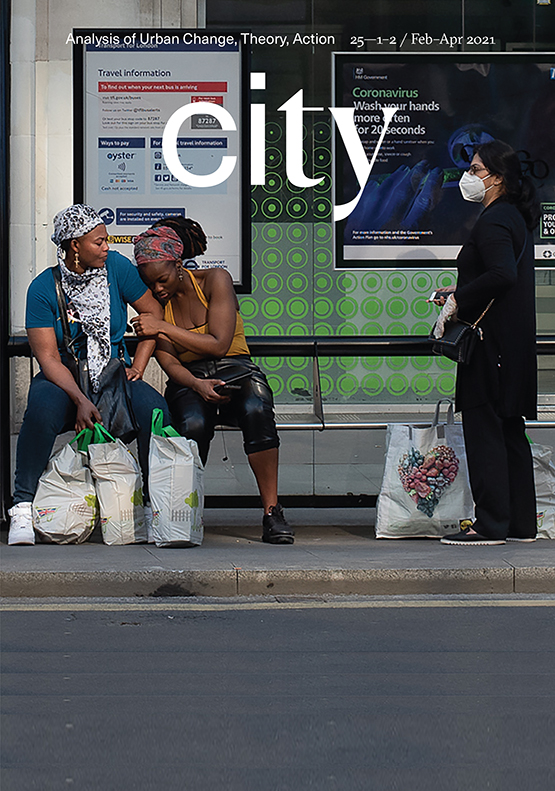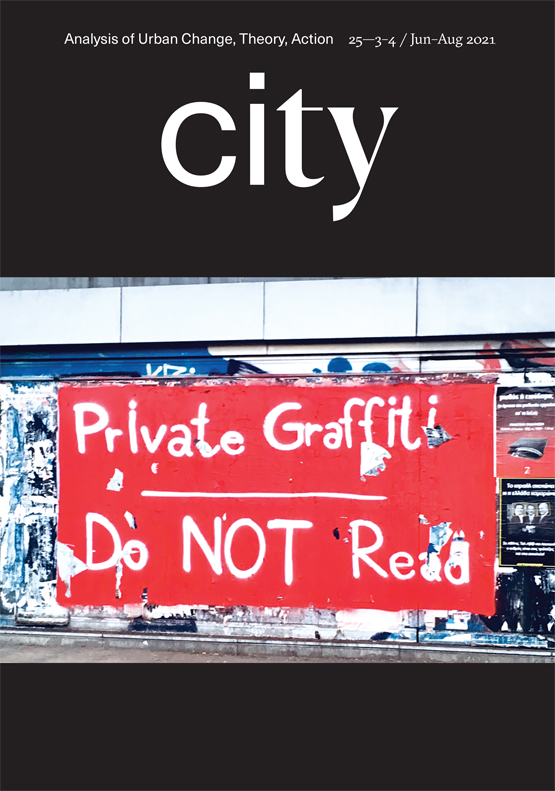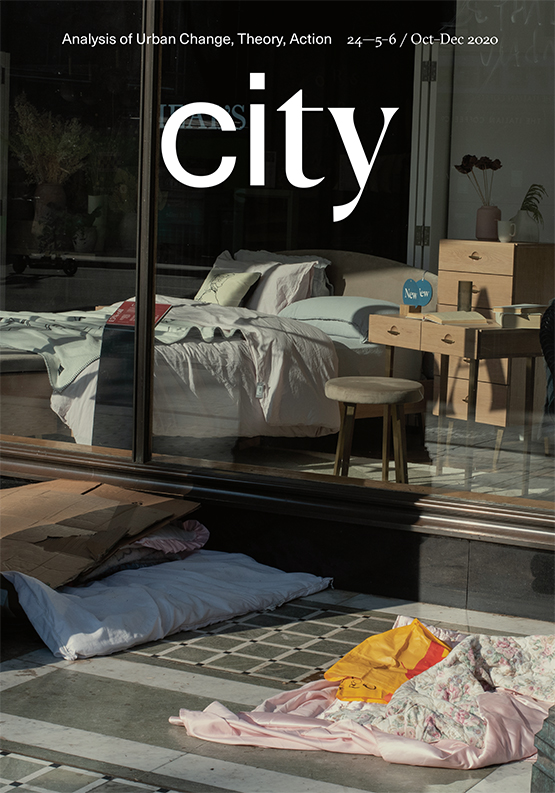founding editor: bob caterrall
editor: city editors
editorial: Making impact strange/making strange impact, by ulises moreno tabarez
It has been almost a year since we published our re-launch issue, 24.1–2. Already in pandemic mode when the issue was published in early May 2020, we as City Editors worked hard to make this happen. This work and achievement were meant to be shared and celebrated. Yet, there was an eerie feeling that hovered over our virtual event, which consisted mostly of brief social media outputs featuring the articles. This feeling hasn’t quite been left behind even after the intimate session with many Collective members where we all just shared how we were doing after our respective geographies implemented contingency measures, including lockdown. We were grateful for the attention and sharing but remained attuned to the ways in which long-standing inequalities in the publishing world, and beyond, were becoming further entrenched. We believe our work was in line with the critical and radical politics required for this moment even though we had not anticipated it by name. Yet this moment, this pandemic, has made strange keywords like impact, productivity, prominence, amongst others. They contrast with the continuation of moments that we have lived, containing anxiety, overwork, fear, love, illness, caring, loneliness, exhaustion, and mutual aid. Moments of contradiction.
Words like impact, productivity, visibility, exposure, and other synonyms have become commonplace in academia; they became ordinary, part of the quotidian academic hustle that fosters academic competition leading to quantity over quality. This academic market champions subjects who have the ability and resources to perform the script that these keywords entail. These subjects sometimes become ‘academic celebrities’ (Walsh 2019), an institution in its own right which is generated and sustained by the ‘managerial universities’ such as those in the United Kingdom which operate under the Research Excellence Framework. Our perception is that the pandemic has made these keywords strange. This strangeness was highlighted because the performance of these keywords has always been undergirded by care and care work. We noted the sharp backlash against academics capitalising on the pandemic, feeding into the industrial printing press machine. There seemed to be a collective response fraught with a repudiation of publications that sought to exploit the pandemic and its associated pain and suffering while we were (still are) going through it all, through moments of contradiction evinced in the contrasting keywords we offer above.
We want to use this space to reflect back on the past year, in particular about how the pandemic has shaped our goals and our work in the academic publishing world. In the opening lines of the re-launch issue, we affirmed our commitment to reworking our role from within the publishing process, to address the lack of access to our journal. For us, this is a moral imperative given that the journal itself has always strived to challenge and propose radical urban futurities. This is what we inherited and we agree with Derrida (1994) that inheritance always implies a responsibility. The challenge before us is learning to navigate the ever-changing world of academic publishing while still staying true to our commitment to publish critical and radical scholarship that contests, blurs and pushes the boundaries of the urban. For us, this implies the need to listen to—as well as to disidentify, to work on and against (Muñoz 1999)—the strangeness of those keywords that are inexorably linked to knowledge production as competition, as business, as part of an insular, self-referential academy that refuses to engage with its complicity in the inequities and inequalities of the urbanising world.
The horizontal structure of the editorial team, including City Editors and City Collective, has remained constant. After accomplishing the goal of relaunching the journal, four editors decided to step back and allow new members to step in and gain editorial experience. They are Pushpa Arabindoo, Melissa Fernández Arrigoitia, Michele Lancione, and now Antonis Vradis. Combined, they had over forty-five years of service to the journal, and three remained part of the City Collective. We miss the intensity of our work together, and we are thankful for their brilliance as scholars and as colleagues in bringing us to this point. The labour-intensive posts of City Editor were always meant to rotate, both to share the burden of hard graft that running a journal involves, but also to continually refresh and renew City’s vision and continue to offer the opportunity to promising scholars, just as that those of us who have now been involved with the journal for many years valued so much. This is Bob Catterall’s legacy, our inheritance, and now our shared responsibility. Where else are early career scholars given so much opportunity to contribute to and shape the urgent debates of our times? The new editors joining the team are Brandi T. Summers, Lindsay Sawyer, myself (Ulises Moreno-Tabarez), and now Yimin Zhao. Each brings unique experiences and perspectives to City: Together, we are learning what it means to do editorial work during a pandemic. Above all, this has meant learning to care for ourselves, our loved ones, our activist comrades, each other, and our editorial practice, as these intimate and social geographies blend into one another. In this vein, the lifeblood of our labour builds on keywords such as conviviality, collaboration, social reproduction, dialogic, and mutuality.
to read this editorial in full, please click here.





